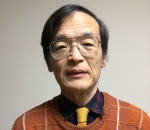日本語版はこちらから
Dear Friends,
Did you hear about Shuntaro Tanikawa? He was a famous Japanese poet who died recently. Many Japanese people know him because his poems appear in school textbooks. He also translated popular works like “Peanuts” comics and the story “Daddy-Long-Legs” into Japanese.
Did you hear about Shuntaro Tanikawa? He was a famous Japanese poet who died recently. Many Japanese people know him because his poems appear in school textbooks. He also translated popular works like “Peanuts” comics and the story “Daddy-Long-Legs” into Japanese.
I learned something interesting – he visited an elementary school near my home six times! This made me feel closer to him. After he died, I wanted to see how different English newspapers wrote about him, so I read three different articles:
1. The Japan Times wrote a simple news story about his death and talked about plans for his memorial service.
2. The Guardian (a famous British newspaper that has been publishing for over 200 years) wrote a longer article. They included many kind words from people who knew him or loved his work.
3. Kyodo News shared a comment from a tanka poet who said Tanikawa was “incredibly honest with his words.”
2. The Guardian (a famous British newspaper that has been publishing for over 200 years) wrote a longer article. They included many kind words from people who knew him or loved his work.
3. Kyodo News shared a comment from a tanka poet who said Tanikawa was “incredibly honest with his words.”
Reading different newspapers in English is a good way to learn! For example, each newspaper used different words to say Tanikawa was famous:
・The Japan Times called him a “renowned poet”
・The Guardian called him a “giant of Japanese poetry”
・Kyodo News used words like “noted poet” and “leading poet”
・The Japan Times called him a “renowned poet”
・The Guardian called him a “giant of Japanese poetry”
・Kyodo News used words like “noted poet” and “leading poet”
It’s easier to remember new English words when we can connect them to real stories like this.
See you next time,
Jiro
Jiro
私立学校に英語教師として勤務中、40代半ばに差し掛かったころ、荒れたクラスを立て直す策として、生徒に公言して英検1級に挑戦することを思い立つ。同様の挑戦を繰り返し、退職までに英検一級(検定連合会長賞)、TOEIC満点、国連英検SA級、フランス語一級、スペイン語一級(文科大臣賞)、ドイツ語一級、放送大学大学院修士号などの成果を得る。
アメリカで生徒への対応法を学ぶ為に研修(地銀の助成金)。最新の心理学に触れた。4都県での全発表、勤務校での教員への研修を英語で行う。現在も特別選抜クラスの授業を全て英語で行っている。「どうやって単語を覚えればいいですか?」という良くある質問に答える為、印欧祖語からの派生に基づく「生徒には見せたくない語源英単語集」を執筆中。完成間近。常日頃洋書の読破で様々な思考にふれているが、そうして得た発想の一つを生かして書いた論文がコロナ対策論文として最近入賞。賞品の牛肉に舌鼓をうっている。元英検面接委員



